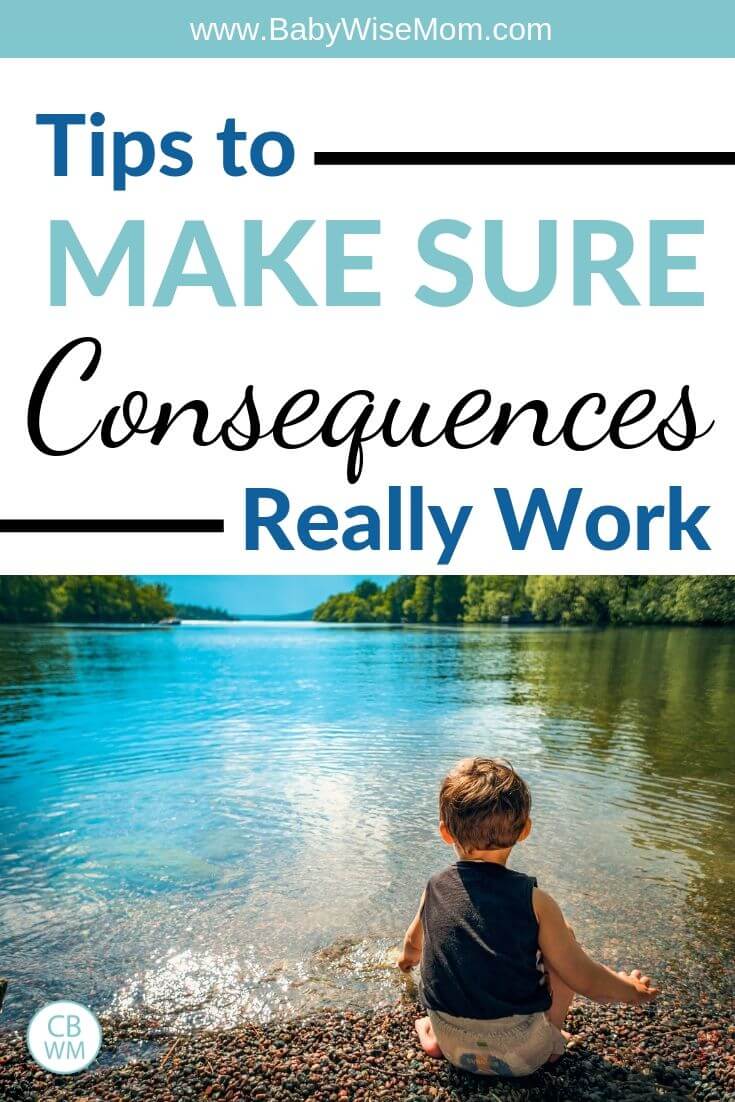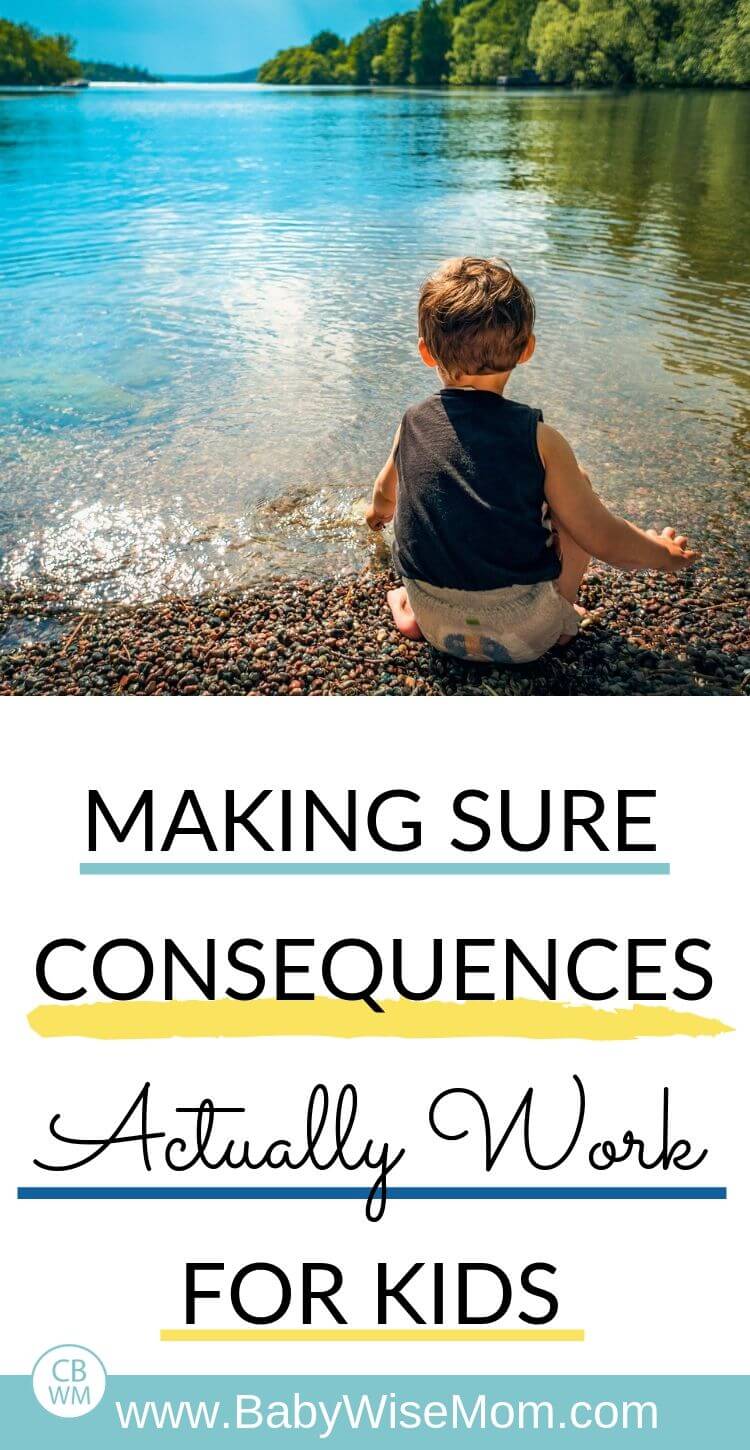Tips to make sure consequences are effective in teaching your child to change her behavior. When you discipline, your goal is for behavior to really change.

When your child misbehaves and does not listen to you, you may be left wondering exactly how you should respond. One of the best ways to respond to misbehavior is allowing consequences to follow or giving consequences for the action.
Here are some thoughts on discipline and consequences I liked from the book Making Children Mind Without Losing Yours by Kevin Leman.
Post Contents
FOCUS ON REALITY
Leman points out that discipline should focus on the reality of the situation (page 28). He uses the example of breaking a toy. If your child breaks a toy, you do not run out and buy a new one to replace it. You have your child pay for it out of allowance or earning money to replace it if you do not do allowance. Reality says, “you broke a toy, you must replace it.”
Reality means your child is accountable for his actions and that unacceptable behavior has no payoff (page 43).
Now here is a point he makes that I think is very important. The reality you must deal with is your child’s perception of it (page 32).
Everyone has a different perspective of reality. It is what your child thinks that counts.
He then focuses on a few areas that affect your child’s perception of reality. Birth order is one. Each child will view a situation differently. One child might feel like another child is loved more than he is. You can tell your child that you don’t love older sister more than him all you want, but he will still have his perception of reality. If your child perceives that he got away with something, then he really got away with it even if you think you have applied some consequence.

LOGICAL AND NATURAL CONSEQUENCES
People often talk about logical and natural consequences when it comes to discipline. Here is a definition of each by Leman:
- Natural: Consequence will happen if events are left to take their course. So if you run when you should walk, you can fall and get hurt. If you harass the cat, you can get scratched. Read more about Natural Consequences here.
- Logical: This is something the parents set up ahead of time. You tell the child what will happen if they disobey or don’t meet responsibilities. For example, if your child comes home late, he doesn’t get to go out tomorrow night. If he constantly forgets to feed the cat, you find a new home for the cat.
Leman has a few hints for making these types of consequences work for you and your family. One is that you must let them happen. You can’t save your child from the natural consequence of his action.
Read: Consequences: Natural vs. Logical
Another is you need to watch out for your child’s remorse. He will likely be very sorry when the consequences meet up with him. Don’t stop at that point and prevent the consequences from taking full effect. You can acknowledge and accept the remorse, but you need to allow the consequences to happen for him to feel the full weight of his mistake.
At this moment, you need to enforce the rules. Remember the Childwise principle that you need to be your child’s parent first. Your child will have many friends, but only one set of parents (see Parent vs. Friend: Childwise ).

I personally favor logical and natural consequences for discipline. I find it the most effective way to teach children to change their behavior. You want logical consequences to relate to the offense, as illustrated in the examples above.
In order for these consequences to work, though, you must be consistent and you must be willing to see them through to the end. It can be hard. Say, for example, your toddler refused to eat any food at lunch. Then she is wanting a snack before naptime. At this point, you explain that she needs to eat her meals at mealtime and she can have more food at the next scheduled meal.
Will she be happy? No. Will she thank you for teaching her this lesson? No. Will she learn from it? Yes.
CONTROL YOUR EMOTIONS
Leman points out another tip for making these consequences work. You must control your emotions (page 115). You can’t give the impression that the consequence is coming because you are angry or want to “get back” at your child. You want to give the consequence without emotional baggage tied to it.
You don’t hate your child for coming home late. Your love for your child is not conditional upon how much food she eats.
Your child is receiving a consequence because that is what happens when they do something wrong. It is the choice they make when they decide to disobey. They can choose to disobey if they want to, but they cannot choose whether or not they feel consequences for that decision. This is the reality of life.
When you are emotionally cool, you make it harder for your child to direct anger toward you for the consequence. He is forced to face the fact that he brought it upon himself.

CONCLUSION
Allowing consequences to happen or giving a logical consequence when there is misbehavior is a very effective form of discipline for children. Do not be scared of consequences; they will help your child grow to be an adult who is equipped to face the real world.
